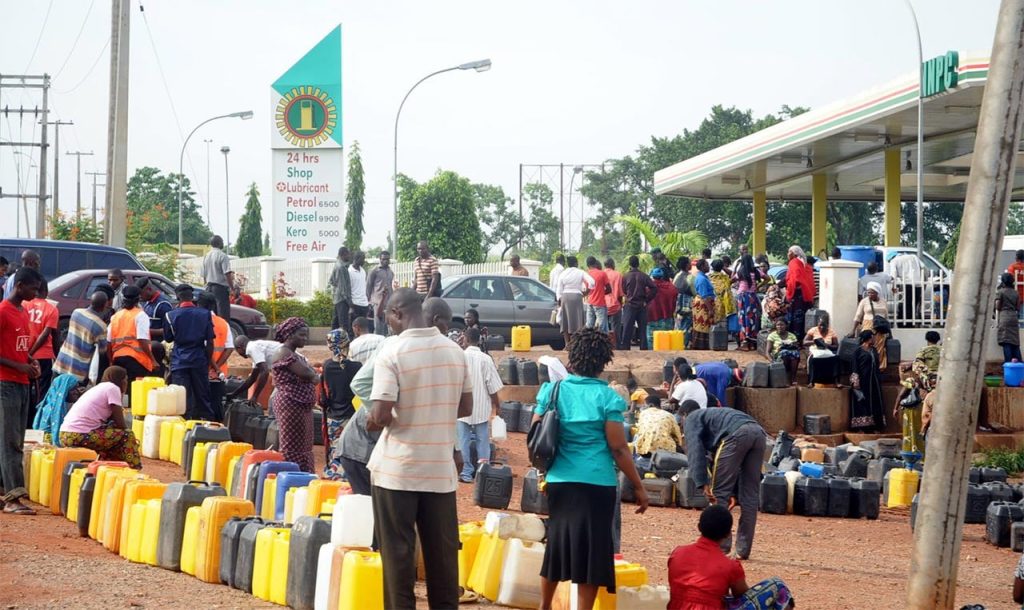The Nigerian petroleum market is experiencing a period of flux, with fluctuating prices and shifting market dynamics creating uncertainty for importers, marketers, and consumers alike. The landing cost of Premium Motor Spirit (PMS), commonly known as petrol, has recently surged, averaging around N870 per litre, according to reports from the Major Energies Marketers Association of Nigeria (MEMAN). This increase poses a significant challenge to traditional importers, as the landing cost now exceeds the ex-depot price of N835 per litre offered by the newly operational Dangote Petroleum Refinery. This pricing pressure from Dangote has squeezed the margins of importers, forcing them to compete in a market where their import costs are higher than the domestically refined product.
The entrance of the Dangote Refinery has significantly disrupted the established order of the Nigerian fuel market. While the refinery’s initial ex-depot price of N835 per litre offered a lower price point than imported fuel, the subsequent fluctuation in landing costs has created a complex pricing landscape. Reports indicate that Dangote’s selling price has varied, with prices as low as N835 and as high as N889 per litre being observed at different retail outlets. This variability, combined with the fluctuating landing costs for importers, has resulted in a volatile market where prices differ based on location and supplier. The logistical costs associated with transporting fuel to different regions within Nigeria further contribute to these price discrepancies, with consumers in the South-South often paying more than those in Lagos.
This price volatility and market uncertainty have impacted businesses across the fuel supply chain. Retailers, represented by the Petroleum Products Retail Outlet Owners Association of Nigeria (PETROAN), report slow business due to the unpredictable price fluctuations. The constant adjustments make it difficult for retailers to maintain stable margins and plan for future operations. Despite these challenges, PETROAN members remain committed to providing fuel to Nigerian consumers, recognizing their crucial role in supporting the country’s economy. They express hope that the market will stabilize, creating a more predictable and profitable environment for all stakeholders.
Adding another layer of complexity to the situation is the naira-for-crude deal between the Federal Government and the Dangote Refinery. This arrangement, which allows Dangote to exchange refined petroleum products for crude oil, has further impacted the dynamics of the Nigerian fuel market. The deal has allowed Dangote to offer lower prices, putting pressure on traditional importers who must compete with the refinery’s subsidized pricing. The temporary suspension of the deal in March led to a swift increase in PMS prices, highlighting the significant influence this agreement has on the market. The subsequent reinstatement of the deal, however, has once again lowered prices, although the long-term impact of this arrangement remains to be seen.
Analysis by S&P Global suggests that the Dangote Refinery’s pricing strategy, while offering lower prices domestically, has also incentivized fuel imports. The report argues that the refinery’s price reductions haven’t kept pace with the global decline in crude oil prices. This discrepancy has created an opportunity for international traders to import fuel into Nigeria, taking advantage of the still-relatively high domestic prices. This dynamic presents a complex scenario where the Dangote Refinery, while aiming to provide affordable fuel, has inadvertently created a competitive landscape that encourages imports.
The Nigerian fuel market is currently navigating a complex transition. The introduction of the Dangote Refinery, the fluctuating global crude oil prices, and the naira-for-crude deal have created a dynamic and unpredictable market. While the long-term effects of these factors are still unfolding, the current situation underscores the need for a stable and transparent pricing mechanism that benefits both consumers and businesses. The government, regulators, and industry stakeholders must work together to create a sustainable market structure that ensures reliable fuel access at reasonable prices for all Nigerians. The current volatility highlights the challenges of transitioning to a new market paradigm and underscores the importance of careful management and strategic planning to mitigate the risks and ensure long-term stability. The future of the Nigerian fuel market hinges on the ability of all stakeholders to adapt to these changing dynamics and create a system that balances the interests of consumers, importers, and domestic refiners.














